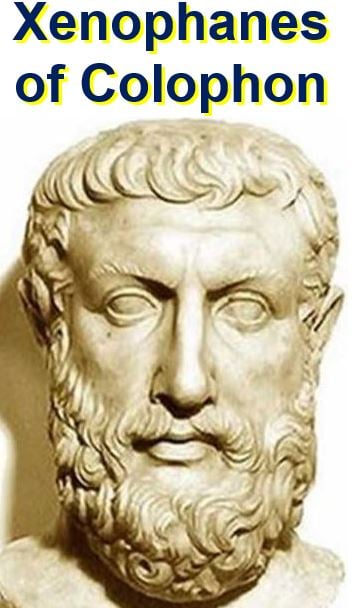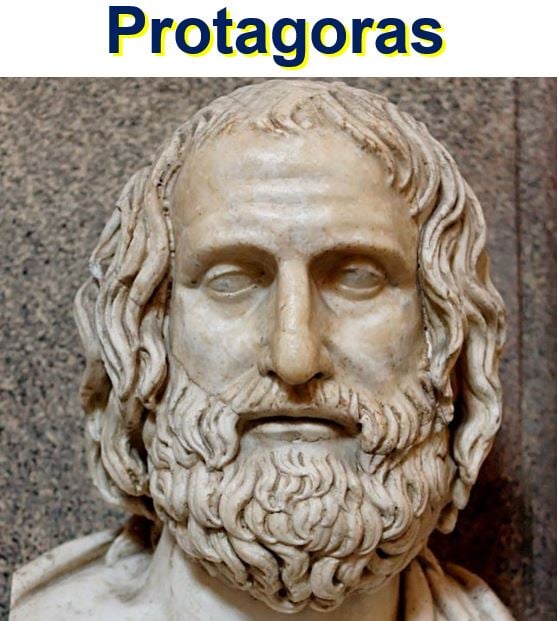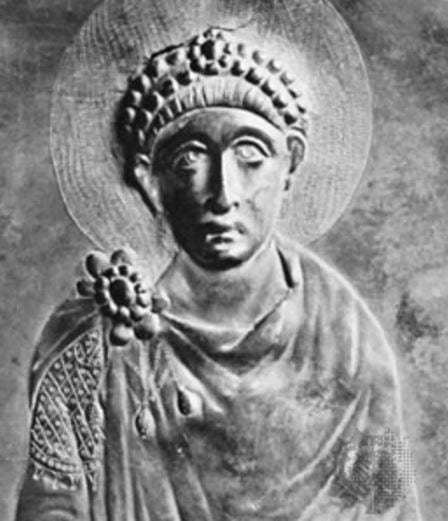Atheism is as old as belief in God or Gods, or virtually all kinds of religion, and is not the result of the European enlightenment of the 18th century or a fashion that started off when German philosopher and economist Karl Marx said “Religion is the opium of the people” during the first half of the 19th century. Disbelief has been around for a very long time and belief in God is not an inherent part of our nature, according to a new study.
Religion is not a ‘default setting in humans’ – we are not hard-wired to believe in God or Gods – says Tim Whitmarsh in his new book – Battling the Gods – which was launched on Tuesday, 16th February, 2016.
For various reasons, atheists were written out of huge chunks of human history. However, they thrived in the polytheistic (belief in many gods) societies that existed several thousand years ago, before the birth of many major religions, including Christianity and Islam.
 Prof. Whitmarsh’s book says that atheism has been around and in abundance ever since humans started believing in God (Gods). (Image: amazon.com)
Prof. Whitmarsh’s book says that atheism has been around and in abundance ever since humans started believing in God (Gods). (Image: amazon.com)
Religion is not in our genes
Whitmarsh, a Professor of Greek Culture and a Fellow of St John’s College at the University of Cambridge, has raised significant doubts regarding the widely-held notion that humans are genetically programmed to worship a God (gods) or to follow a religion.
Prof. Whitmarsh suggests that atheism – which most people believe is a modern phenomenon – was not just widespread in ancient Greece and pre-Christian Rome, but probably thrived in those societies considerably more than in the majority of civilisations since.
There are two assumptions that both atheists and believers support:
1. The notion that atheism is a modern movement.
2. The idea of ‘religious universalism’ – belief in Gods is a human trait, we are all hard-wired that way.
Prof. Whitmarsh’s study challenges both assumptions. In fact, he says that anybody who carefully studies the history and ancient history of human civilisation will see that they are both wrong.
 Xenophanes of Colophon (c.570 – c.475 BC) said that humans are independent of the gods with their intelligence. He believed our discoveries in science and other areas were the result of our own work and not divine favours – thus removing the gods from getting the credit for human accomplishment. (Image: famousphilosophers.org)
Xenophanes of Colophon (c.570 – c.475 BC) said that humans are independent of the gods with their intelligence. He believed our discoveries in science and other areas were the result of our own work and not divine favours – thus removing the gods from getting the credit for human accomplishment. (Image: famousphilosophers.org)
Disbelief is timeless and ubiquitous
Regarding atheism and how long it has been around, Prof. Whitmarsh said:
“We tend to see atheism as an idea that has only recently emerged in secular Western societies. The rhetoric used to describe it is hyper-modern. In fact, early societies were far more capable than many since of containing atheism within the spectrum of what they considered normal.”
“Rather than making judgements based on scientific reason, these early atheists were making what seem to be universal objections about the paradoxical nature of religion – the fact that it asks you to accept things that aren’t intuitively there in your world.”
“The fact that this was happening thousands of years ago suggests that forms of disbelief can exist in all cultures, and probably always have.”
Atheism is as ‘old as the hills’, the book states. The atheistic writings of Xenophanes of Colophon (c.570-475 BC), a Greek philosopher, theologian, poet, and social and religious critic, are contemporary with Second Temple-era Judaism. He said that the non-believers who existed at the time were ‘not the first to have had this view about the gods’.
Long-term history of atheism largely undocumented
The existence of atheism in history and ancient history has largely gone unwritten, which means that it is also absent from both sides of the atheist versus monotheist (belief in just one God) debate.
 Protagoras (c.490 – c.420 BC), a Greek philosopher, reportedly wrote in his lost work ‘On the God’: “Concerning the gods, I have no means of knowing whether they exist or not, nor of what sort they may be, because of the obscurity of the subject, and the brevity of human life.” At the time, believers, atheists and agnostics were equally tolerated. (Image: thefamouspeople.com)
Protagoras (c.490 – c.420 BC), a Greek philosopher, reportedly wrote in his lost work ‘On the God’: “Concerning the gods, I have no means of knowing whether they exist or not, nor of what sort they may be, because of the obscurity of the subject, and the brevity of human life.” At the time, believers, atheists and agnostics were equally tolerated. (Image: thefamouspeople.com)
While atheists describe religion as one of the characteristics of primitive societies, the notion of religious universalism is also built on the idea that our ancient ancestors were religious by nature because belief in god is an inherent ‘default setting’ for every human being.
Prof. Whitmarsh suggests that neither perspective is true:
“Believers talk about atheism as if it’s a pathology of a particularly odd phase of modern Western culture that will pass, but if you ask someone to think hard, clearly people also thought this way in antiquity.”
In his book, he has surveyed over one thousand years of ancient history with compelling evidence to prove his point – teasing out several forms of disbelief expressed by notable writers, public figures and philosophical movements.
 Karl Marx (1818 – 1883), a German economist, philosopher and revolutionary socialist, once said “Religion is the opium of the people.” Atheism had been around for several thousand years before he said that. (Image: Wikipedia)
Karl Marx (1818 – 1883), a German economist, philosopher and revolutionary socialist, once said “Religion is the opium of the people.” Atheism had been around for several thousand years before he said that. (Image: Wikipedia)
Atheism thrived in ancient Greece
The polytheistic Greek societies, which from 650 to 323 BC consisted of about 1,200 city states, each with its own governance, traditions and customs, were ideal places for believers and non-believers alike.
There were several different religions in these Greek societies, which celebrated city festivals dedicated to a number of divine entities – they also had village rituals. Private cults in those days were all over the place.
Religious orthodoxy did not exist in these polytheistic societies. The closest the ancient Greeks came to a unifying sacred text were Homer’s epics, which contained no coherent moral vision of the gods – in fact, they were frequently portrayed as immoral.
 Emperor Theodosius I described all non-Catholics, including atheists as demented lunatics (dementes vesanosque), which made life for non-believers in the Roman Empire extremely difficult. (Image: britannica.com)
Emperor Theodosius I described all non-Catholics, including atheists as demented lunatics (dementes vesanosque), which made life for non-believers in the Roman Empire extremely difficult. (Image: britannica.com)
Likewise, there weren’t any specialized priests going around telling people how to live. Prof. Whitmarsh explained that to people in the Greek world, the idea of a priest telling people what to do was alien.
Atheists not seen as morally wrong in ancient times
Consequently, atheists were seen by believers as possibly mistaken, but never morally wrong. Being an atheist was generally tolerated as one of several viewpoints that individuals could adopt on the subject of gods.
Only on very rare occasions was it actively legislated against, as occurred in Athens during the fifth century BC, when Socrates was sentenced to death and executed for ‘not recognising’ the gods of the city.
There were several different types of atheist approaches and movements, many of which continued across the generations, Prof. Whitmarsh wrote.
Ancient atheists and disbelievers today still struggle with many of the same fundamentals – such as how to explain aspects of religion which seem implausible, or how to deal with the problem of evil.
Separating religious explanations from straightforward events has been a struggle shared by philosophers, writers and thinkers spanning several thousands of years.
Anaximander and Anaximenes (two ancient Greek philosophers) tried to explain that the gods had nothing to do with earthquakes and thunder, while Euripides’ (one of the great Athenian playwrights and poets of ancient Greece) plays openly criticised divine causality.
The Epicureans, arguably the most famous group of atheists in ancient history, insisted predestination was a myth – they also rejected the idea that human life was controlled by the gods. The Epicurians followed a system of philosophy that was founded around 307 BC based upon the teachings of the ancient Greek philosopher Epicurus (an atomic materialist).
‘Seismic’ change for atheists when Rome adopted Christianity
Prof. Whitmarsh suggests that the age of ancient atheism came to an end when the monotheistic imperial forces were born – monotheistic refers to the belief in just on ‘true’ God.
He describes Rome’s adoption of Christianity in the 4th century AD as ‘seismic’, because religious absolutism was used to hold the whole Empire together.
A significant proportion of the later Roman Empire’s ideological energy was expended fighting allegedly heretical (unorthodox) beliefs – usually other forms of Christianity.
Emperor Theodosius I signed a decree in 380 AD in which he described all non-Catholics as dementes vesanosque (‘demented lunatics’). Such rulings made any other beliefs, including atheism, virtually impossible.
Prof. Whitmarsh emphasized that his study does not aim to either prove or disprove whether or not atheism holds the truth.
On the first page of the book, he wrote:
“I do, however, have a strong conviction – that has hardened in the course of researching and writing this book – that cultural and religious pluralism, and free debate, are indispensable to the good life.”
